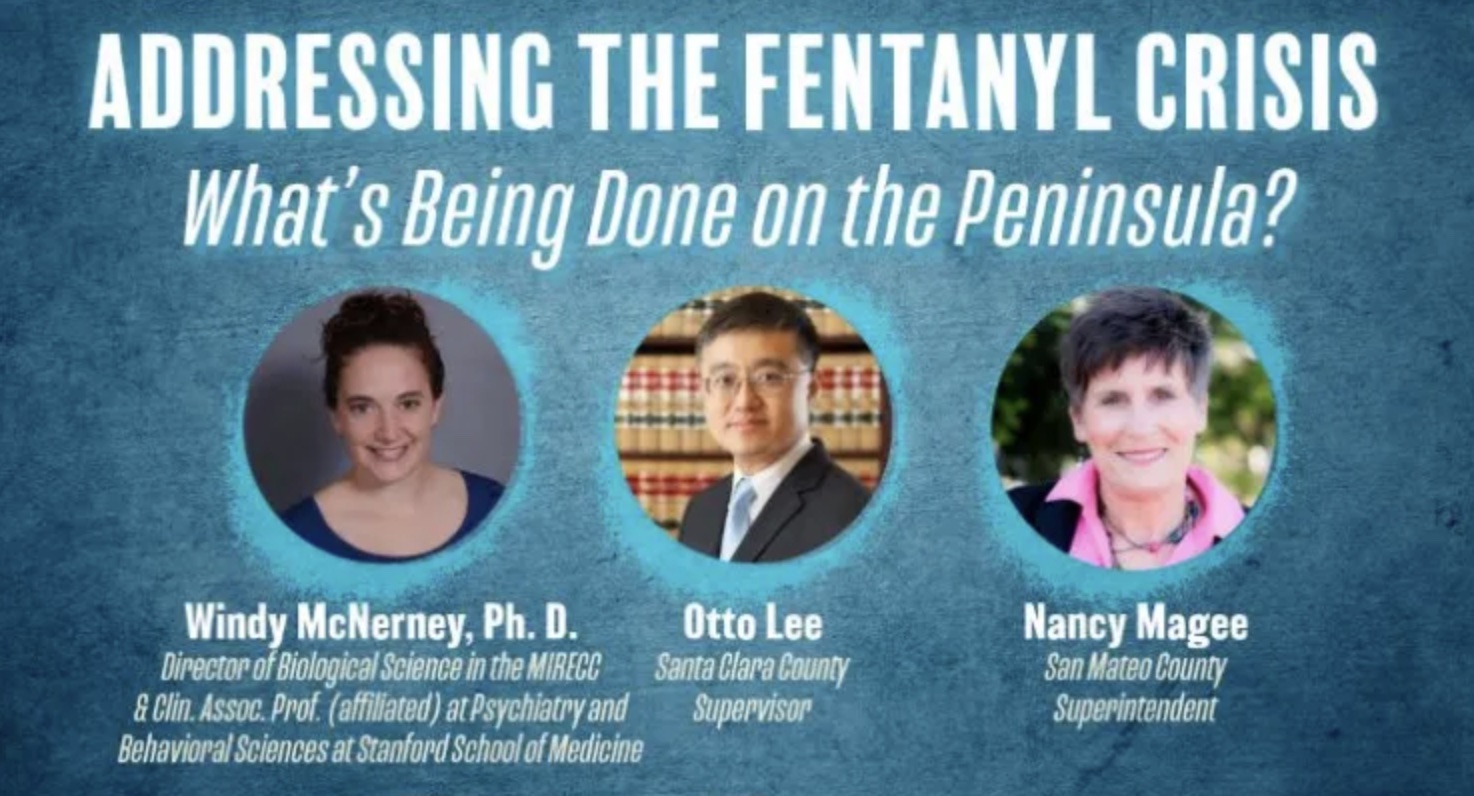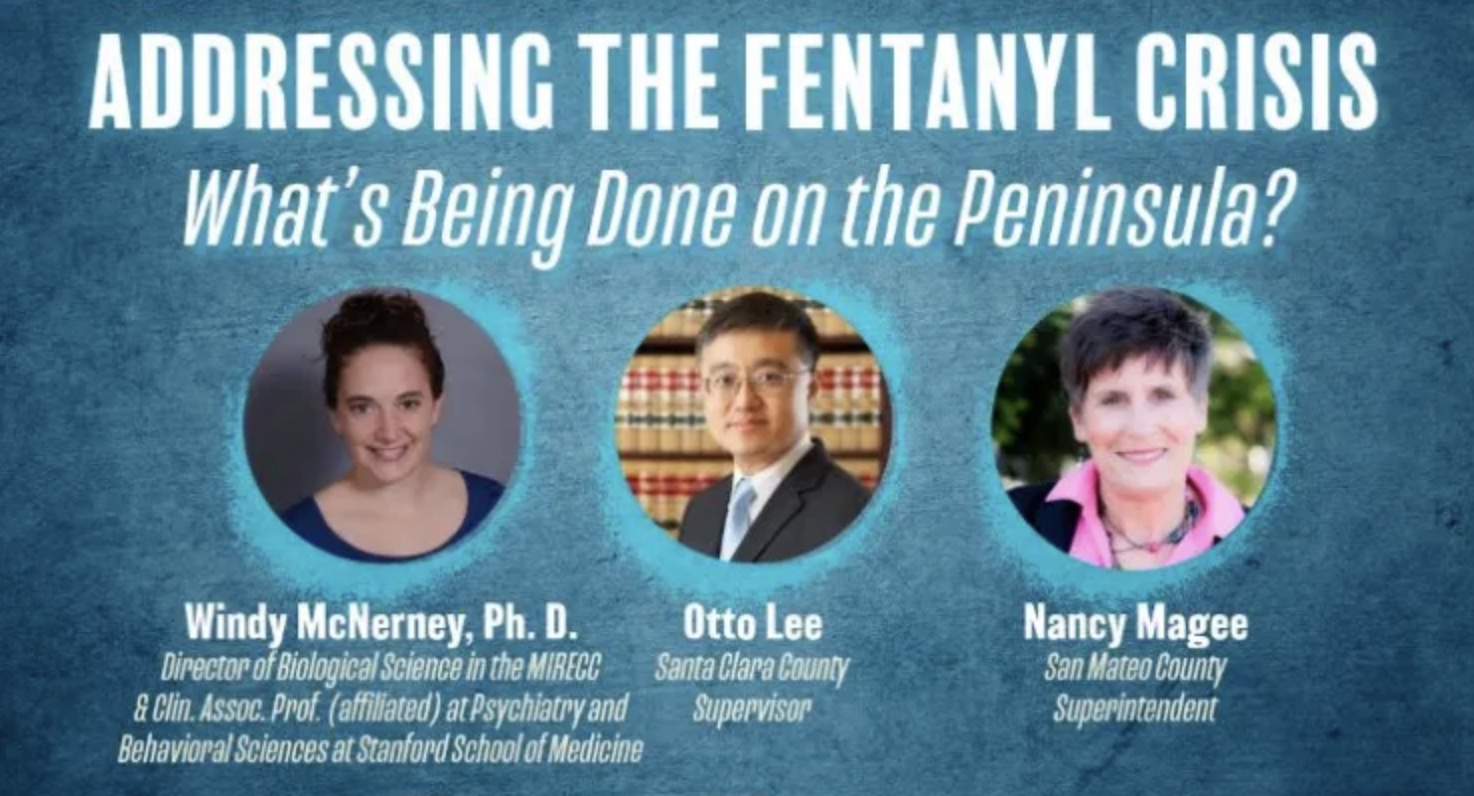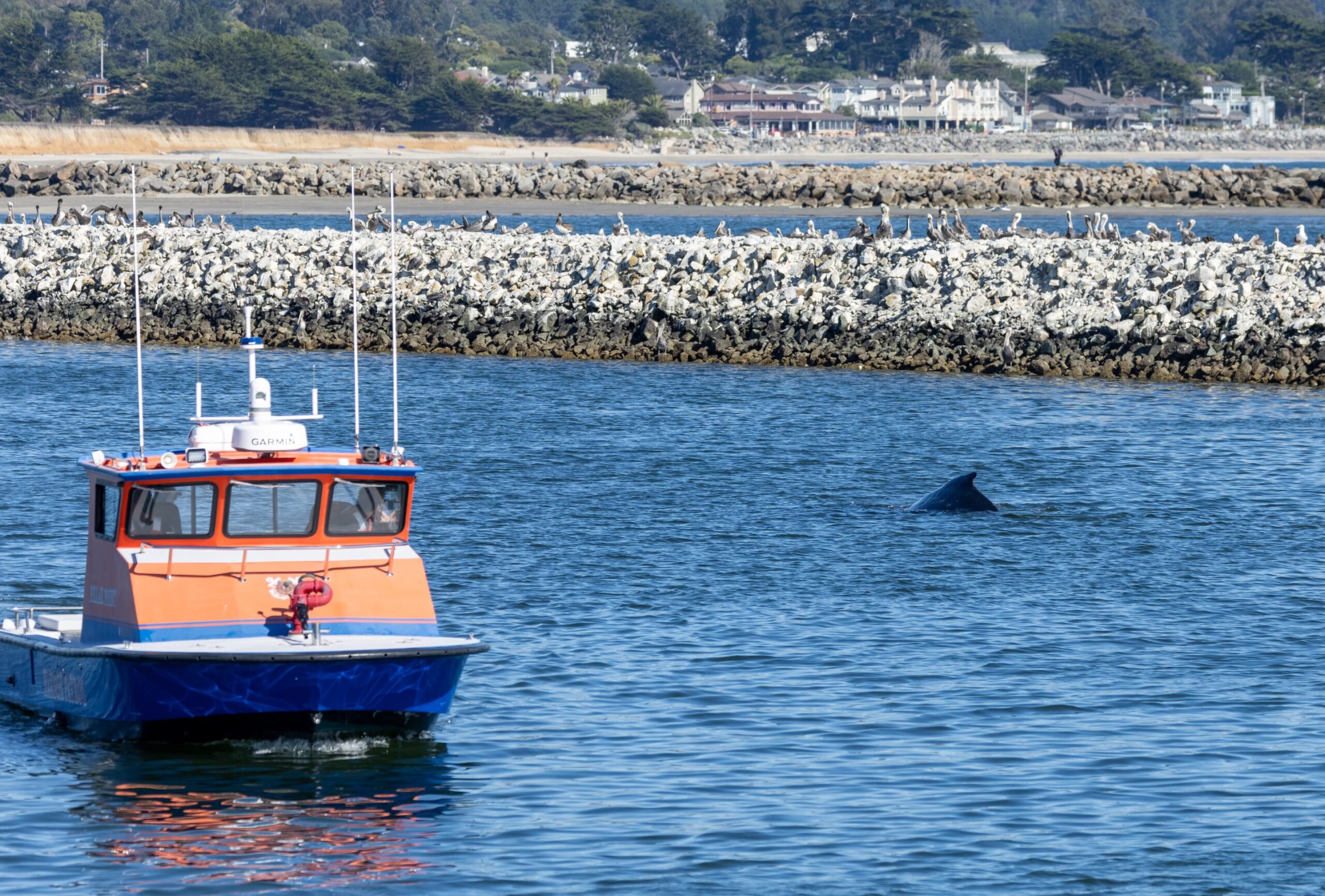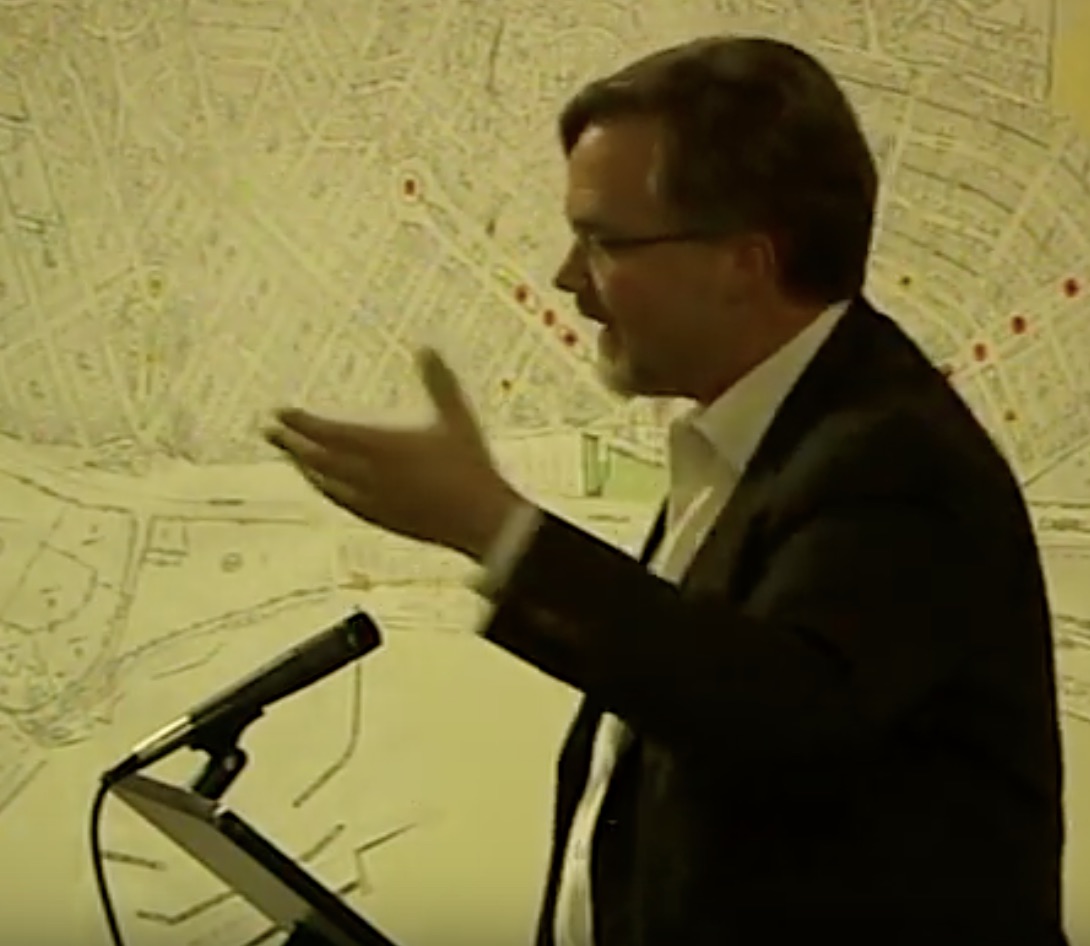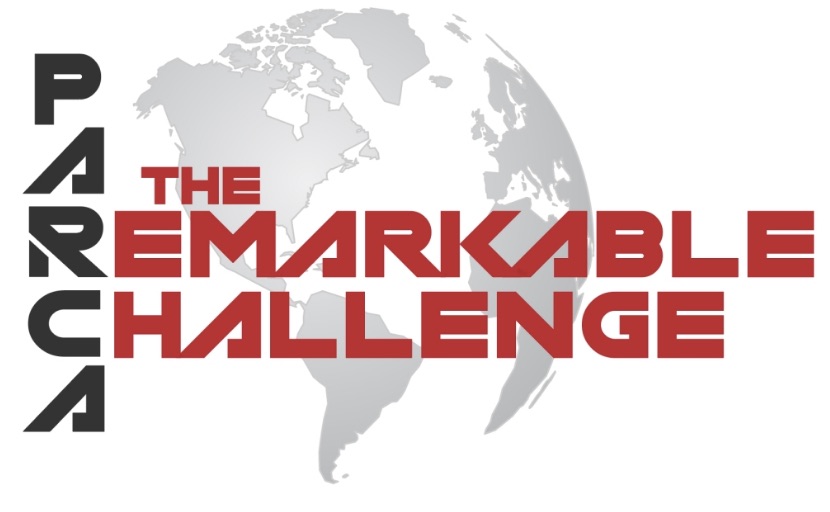|
Getting your Trinity Audio player ready...
|

Thanks to all those who joined my August 31st town hall, “Addressing the Fentanyl Crisis: What’s Being Done on the Peninsula?” If you haven’t seen it yet, I hope you will watch the video recording on my website and review the follow up resources from health professionals. If you have seen the town hall, please take a moment to answer a few brief questions to let me know what you thought about the event so my team and I can improve our future town hall meetings.
We had a valuable and informative discussion at this town hall, and I am thankful to everyone who tuned in and to our expert panelists Dr. Windy McNerney, Ph. D., Director of Biological Science Core Division in the Mental Illness Research, Education, and Clinical Center (MIRECC) at the VA Palo Alto, and a Clinical Associate Professor (affiliated) at Psychiatry and Behavioral Sciences at Stanford University School of Medicine; Santa Clara County Supervisor Otto Lee; San Mateo County Superintendent Nancy Magee; and parent activists Ed Ternan, President of Song for Charlie, and Liz Walker of the Colin Walker Memorial Foundation.
Here are some takeaways from our fentanyl town hall discussion:
- ADDICTION RISK: “Fentanyl is a synthetic opioid that is up to 50 times stronger than heroin and 100 times stronger than morphine. It is a major contributor to fatal and nonfatal overdoses in the U.S.,” according to the C.D.C.’s article, “Fentanyl Facts.”
- GET NARCAN: Having ready access to Naloxone, also known as Narcan, will save lives, in the event of an overdose. Narcan will be available without prescription soon. Meanwhile, you can get it at the following sites now:
- South County Clinic, 90 Highland Avenue, Building J,, San Martin, CA, 95054; Phone: (408) 852-2420; Nursing: (408) 852-2440
- Alexian Health Clinic, 2101 Alexian Drive, Suits A& B, San Jose, CA, 95116; Phone: (408) 272-6577; Nursing: (408) 272-6077
- Central Valley Clinic, 2425 Enborg Lane, San Jose, CA, 95128; Phone: (408) 885-5400; Nursing:(408) 885-5487
- One Life Counseling Center, 1303 San Carlos Ave, San Carlos, California; Phone: (650) 394-5155; Fax:(650) 332-2946; Email: info@
onelifecounselingservices.com
- TALK TO YOUR KIDS: Learn new and effective techniques on how to speak with your child about drugs at the New Drug Talk Parent Portal, where you can find helpful tools and information to guide your next conversation.
- DON’T TRUST FAKE PILLS: Since pills can not be tested reliably, only take pills dispensed legally from pharmacists. So many fake pills are contaminated with fentanyl, and one dose can be lethal.
- TEST STRIPS: Test strips are a good harm reduction tactic. In a college environment, drugs will be used recreationally within social circles, and having test strips ready creates a culture where all drugs are tested.
- GET HELP: To get help for yourself or a loved one who has substance use and abuse issues, please see these help centers for your county:
- Residents of Santa Clara County: visit the Opioid Overdose Prevention Project or call (800) 704-0900
- Residents of San Mateo County: visit the Substance Use Treatment Services or call (800) 686-0101
For a topic this important, I want to get the word out throughout the district about ways to prevent tragedy when possible. Not only have I received many notes of appreciation about this event from constituents and attendees for whom this topic resonated, but also the media coverage of the event highlights the need for our community to address this issue head-on. Here are a couple snippets from our local papers:
“Fentanyl, which is 50 times more potent than heroin and 100 times stronger than morphine… has made its way into adulterated pills and other street drugs, often killing unsuspecting users. Many of its victims are teens and students who are experimenting with drugs. A fake Percocet taken at a party can quickly result in a fatality, the panelists said,” in The Palo Alto Weekly’s article, ‘The urgency of this matter strikes me very deeply‘. “There is an antidote, but it must be used quickly: Naloxone, or Narcan,” the article goes on, quoting Supervisor Lee: “I firmly believe that everybody should have Narcan… it’ll save people’s lives.”
The San Mateo Daily Journal quotes Senator Becker in their article, ‘Fentanyl is no joke’: “Many of us have stood beside friends and family members battling the grip of opioid use. The fentanyl crisis ranks among the most formidable challenges to public health and safety in our time and it compels us to dive deeper into nuances.”
As both a father of two teenagers and a public servant, the urgency of this matter strikes me very deeply. I hope this town hall and my resources page are helpful to you and our communities.
Take Survey
Watch Video
View Health Resources
Sincerely,
Josh Becker
State Senator, 13th District
Addressing The Fentanyl Crisis: What’s Being Done On The Peninsula?
There is no doubt that California is facing a deadly epidemic with fentanyl. In 2021, 5,961 Californians died from fentanyl overdose. That’s more than the estimated 4,258 people who died in auto accidents on California roads and more than double the 2,548 killed in homicides. 1 in 5 youth deaths involved fentanyl that year.
These deaths come, in part, from people unknowingly buying another substance that turns out to contain fentanyl. Lack of understanding of this epidemic is contributing to needless overdoses and death. It’s important for people of all ages to understand what fentanyl is and how it affects the body, to learn what our government is doing about it, and to hear from families that have lived through tragedy caused by this nefarious substance. That’s why I am hosting a virtual town hall on “Addressing the Fentanyl Crisis: What’s Being Done on the Peninsula?”
I am honored to host these experts in the field of health policy and parent activists on this topic: Dr. Windy McNerney, Ph. D., Director of Biological Science Core Division in the Mental Illness Research, Education, and Clinical Center (MIRECC) at the VA Palo Alto, and a Clinical Associate Professor (affiliated) at Psychiatry and Behavioral Sciences at Stanford University School of Medicine; Santa Clara County Supervisor Otto Lee; San Mateo County Superintendent Nancy Magee; and parent activists Ed Ternan, President of Song for Charlie, and Liz Walker of the Colin Walker Memorial Foundation.
Fentanyl Town Hall Resource List
August 31, 2023
Resources Provided by Speakers
Song for Charlie is a national family-run nonprofit charity dedicated to raising awareness about ‘fentapills’ — fake pills made of fentanyl.
The New Drug Talk Connect to Protect is a site that provides education, free tools, and expert advice to help California families connect and stay safe.
The Santa Clara County Opioid Overdose Prevention Project (SCCOOPP) is a coalition of healthcare professionals and other volunteers from a variety of backgrounds whose aim is to promote opioid safety throughout our county for all residents. Our coalition is part of a larger network of opioid safety coalitions throughout the state, called the California Opioid Prevention Network.
The California Overdose Prevention Network (COPN) is a network for coalitions, organizations, and individuals working at the forefront of the overdose epidemic.
Santa Clara County Public Health Harm Reduction Program (HRP). The HRP outreach staff utilize medical mobile units throughout the County to distribute injection and alternatives to injection supplies, opioid overdose prevention supplies, safer sex supplies. The HRP services include harm reduction health education, HIV, HCV, STD testing and counseling, and referrals to additional services.
Palm Avenue Detox is a 20-bed social model detoxification program serving men, women, trans and non-binary Medi-Cal beneficiaries experiencing substance use disorders and co-occurring behavioral health disorders in San Mateo County.
Medication Assisted Treatment (MAT) clinic locations in Santa Clara County and San Mateo County (for Narcan and fentanyl test strips)
- South County Clinic, 90 Highland Avenue, Building J,, San Martin, CA, 95054
Phone: (408) 852-2420; Nursing: (408) 852-2440 - Alexian Health Clinic, 2101 Alexian Drive, Suits A& B, San Jose, CA, 95116
Phone: (408) 272-6577; Nursing: (408) 272-6077 - Central Valley Clinic, 2425 Enborg Lane, San Jose, CA, 95128
Phone: (408) 885-5400; Nursing:(408) 885-5487 - One Life Counseling Center, 1303 San Carlos Ave, San Carlos, California
Phone: (650) 394-5155; Fax:(650) 332-2946; Email: info@onelifecounselingservices.com
Substance Use Services & Resources
San Mateo County Access Call Center 24/7 for assistance Toll Free: (800) 686-0101
- A trained professional will ask you questions to help find the right care for you.
- You will receive a referral to an appropriate substance use treatment and/or mental health provider.
- Access Call Center staff speak English, Spanish, and Chinese. For other languages, they will assist you through a free telephone interpreter service
Santa Clara County Mental Health and Substance Use Hotline: (800) 704-0900
If you need:
- Referral to mental health or substance use treatment services.
- General information about BHSD services.
- To make a grievance or appeal a filing.
Substance Abuse and Mental Health Services Administration National Helpline 1-800-662-HELP (4357)
- a confidential, free, 24-hour-a-day, 365-day-a-year, information service, in English and Spanish, for individuals and family members facing mental and/or substance use disorders. This service provides referrals to local treatment facilities, support groups, and community-based organizations.
Crisis/Suicide Hotline & Text
- Youth Stabilization, Opportunity, and Support (S.O.S.) team – crisis hotline and services for youth (including foster youth) ages 0-25: (650) 579-0350
- Teen Crisis Services: Monday-Friday 4:00-10:00 pm PST, Text 650-747-6463 | online chat sanmateocrisis.org
Find a Behavioral Health Provider/Program
Substance Use Disorders Provider & Program Directory
- If you need this directory in an alternative communication format such as large font, Braille, or an electronic format, or, if you would like help reading the material, at no cost to you please contact BHRS by calling (800) 388-5189.
Websites to visit for additional information:


